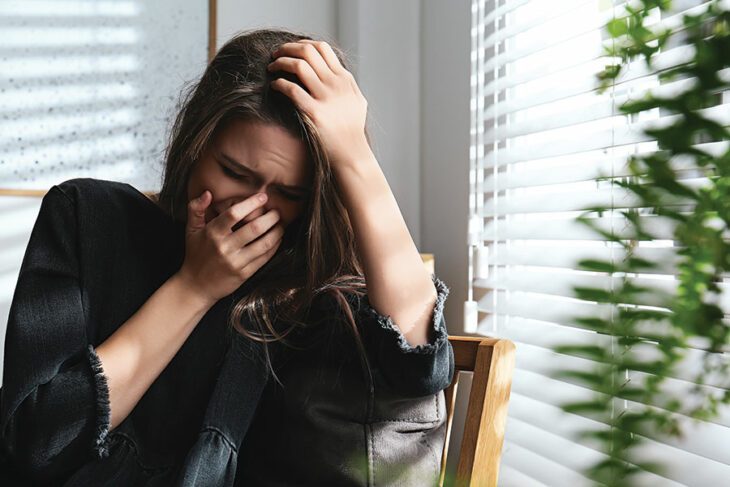By René Davis
The COVID-19 crisis has been a stressful time for us all, but for those living with domestic violence, quarantine at home can feel like being caught in a very dangerous trap. If you’re living with abuse in the midst of the pandemic, here are some things you can do to maximize your safety:
PLAN AND STAY PREPARED
Think ahead to what you’d do if things escalated and you had to leave immediately. Where would you go first? How would you get there? Hide an extra car key, house key, change of clothes and shoes and a bit of money or credit card somewhere your abuser won’t find them. You may want to leave these items with a family member, neighbor or trusted friend. If you can, also stash copies of your ID, any prescriptions, insurance cards and other vital papers.
Also, keep your cell phone charged. Add the Gulf Coast Center for Nonviolence crisis line (800-800-1396) to your contacts under a fictitious name that won’t raise suspicions. Emergency shelter is available if you don’t have another safe space to go where you can’t be found.
Think about the physical layout of your home. Are there any guns or other weapons in the house? Where are they? Where are the exits? Does your home have more than one floor? As much as you can, try not to get trapped alone with your abuser in a vehicle or in a room without access to a safe exit. Mentally rehearse what you’d do if you needed to escape; you won’t be able to think clearly to make these decisions once you’re in danger.
PACIFY AND PLACATE
Staying safe may mean taking care to avoid escalating any arguments with your abuser. This may mean letting them rant without arguing or defending yourself verbally. It may mean letting them believe whatever they want about you without correcting them. It may mean outwardly smiling when you’d rather scream. This isn’t fair; it’s very difficult, and it absolutely does NOT mean that you deserve abuse or are causing it. Abuse is never the victim’s fault, but if keeps you safe, just try to pacify.
Practice self-care to cope with the stress. Meditate, take a walk, take a hot bath, listen to music, garden or read books — whatever helps you to relax and recharge.
TRY TO MAINTAIN BRIDGES TO SAFETY
One effect of domestic violence is that victims often become socially isolated. Quarantined at home, you may feel as if you’ve been cut off completely from the outside world. If you can, try to remain in contact with a few people you trust. Ask trusted friends and family to check in on you regularly in case you lose access to your phone or computer. Discuss code words with them to signal that you need help. For example: “If I ever ask you about ‘Susan,’ that’s the code word to call 911.” If you have children and they’re old enough to understand, discuss the code word with them as well, but only if you can be certain they won’t share this information with your abuser.
IF YOU MUST ESCAPE
If you make the decision to leave, never tell your abuser where you’re going. Get to safety, and then stay there. Do not take calls from your abuser or get pulled into a text conversation. Don’t agree to meet “for the sake of the children.” The most dangerous time for victims of abuse is the first few days after leaving, so don’t give your abuser any opportunity to be near you.
If you absolutely must return to your home, contact police to assist you with an escort. Stay safe and reach out to the Gulf Coast Center for Nonviolence for shelter, counseling, legal services, case management and housing assistance.
Rene’ Davis is communications manager for the Gulf Coast Center for Nonviolence. Reach her at rdavis@gccfn.org or (228) 436-3809.


